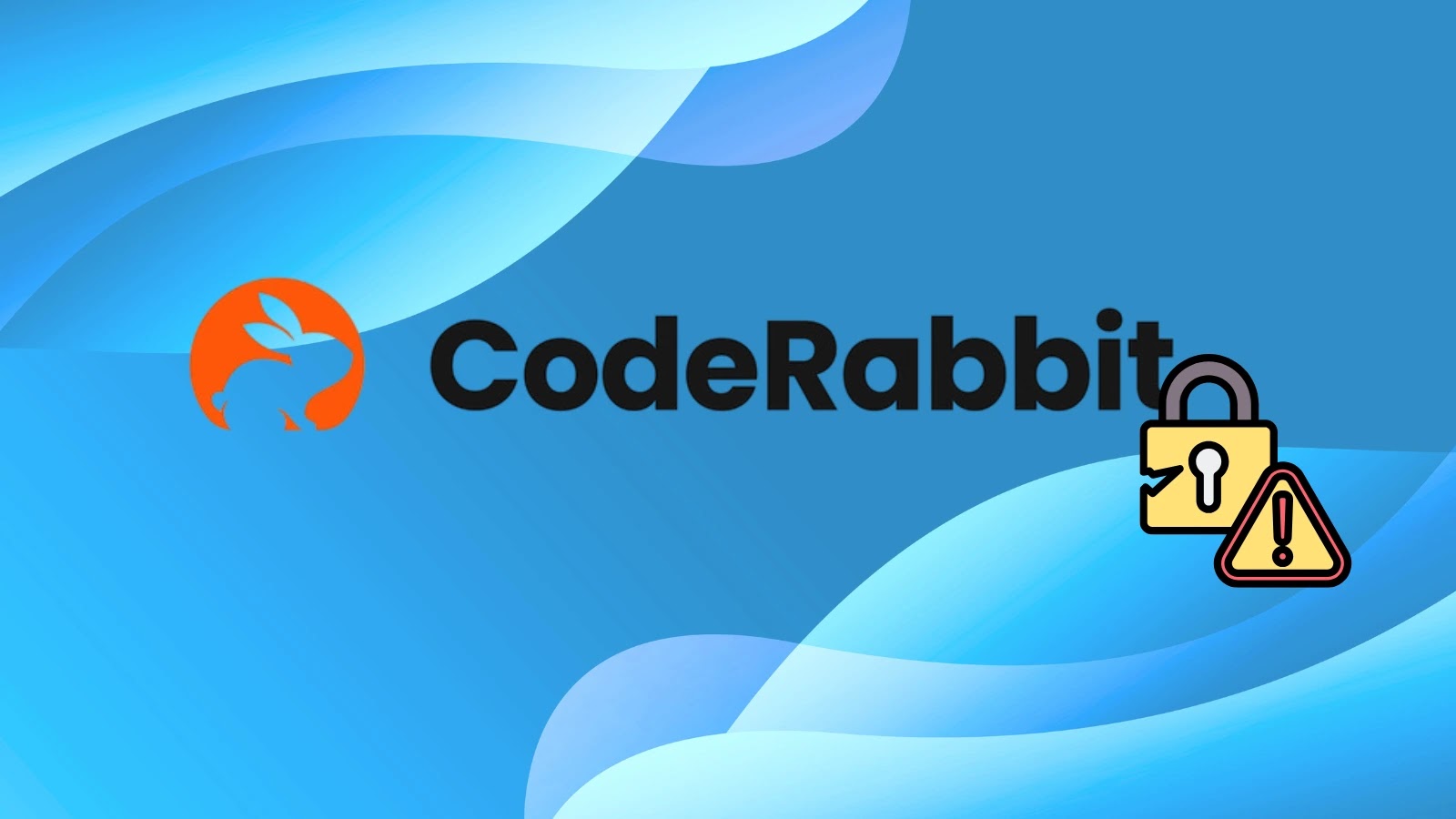
CodeRabbit’s Production Servers RCE Vulnerability Enables Write Access on 1M Repositories
The CodeRabbit RCE: A Million Repositories at Risk
The digital landscape is a battleground where the integrity of code is paramount. A recent, severe vulnerability within CodeRabbit’s production infrastructure serves as a stark reminder of these ongoing risks. Discovered in December 2024 and responsibly disclosed in January 2025, this critical remote code execution (RCE) flaw granted unauthorized write access to over one million code repositories, including sensitive private ones. This incident underscores the profound implications when security weaknesses in critical development tools are exploited.
Understanding the CodeRabbit RCE Vulnerability
The core of the CodeRabbit RCE vulnerability stemmed from an ingenious exploitation method targeting the platform’s integrated static analysis tools. These tools, designed to enhance code quality and security, ironically became the conduit for compromise. Attackers were able to leverage a flaw within this integration to:
- Leak Sensitive API Credentials: The initial breach enabled the exfiltration of critical API keys and tokens. These credentials, intended for legitimate interactions with other services, became the golden key for further unauthorized access.
- Gain Write Access to GitHub Repositories: With stolen API credentials, attackers successfully elevated their privileges to gain write access to a vast number of GitHub repositories. This level of access allows for code modification, injection of malicious payloads, and potential supply chain attacks.
While a specific CVE ID for this vulnerability has not yet been publicly assigned (as of the disclosure period), the severity of the impact suggests it will be classified with a high CVSS score, warranting immediate attention from all affected users and the broader developer community.
Impact and Implications for Code Integrity
The compromise of CodeRabbit’s production servers carries far-reaching consequences:
- Supply Chain Attacks: Write access to code repositories opens the door for attackers to inject malicious code directly into legitimate projects. This could lead to backdoors, data exfiltration, or even ransomware deployment within downstream applications and organizations that utilize the compromised code.
- Intellectual Property Theft: Private repositories often contain proprietary algorithms, trade secrets, and unreleased product designs. Unauthorized access to these assets can result in significant financial losses and erosion of competitive advantage.
- Reputational Damage: For both CodeRabbit and the organizations whose repositories were affected, such a breach severely damages trust and reputation.
- Developer Trust Erosion: Developers rely on platforms like CodeRabbit for secure code review and analysis. Incidents of this magnitude can diminish confidence in third-party development tools, impacting adoption and security practices across the industry.
Remediation Actions and Best Practices
In light of this critical incident, prompt action is essential for CodeRabbit users and the broader development community. While CodeRabbit has presumably patched the vulnerability and communicated with affected parties, general best practices for developers and organizations are crucial:
- Rotate API Keys and Tokens: If your organization used CodeRabbit, immediately rotate all API keys and tokens that were configured with the service. Assume they are compromised.
- Audit Repository Activity: Thoroughly review commit histories, pull requests, and any recent changes in your repositories for suspicious activity. Look for unauthorized code modifications or new, unrecognized contributors.
- Enforce Principle of Least Privilege: Regularly review and restrict the permissions granted to third-party tools and integrations. Only provide the minimum necessary access required for their functionality.
- Implement Multi-Factor Authentication (MFA): Ensure MFA is enabled for all GitHub and other code hosting platform accounts to prevent unauthorized access even if credentials are stolen.
- Regular Security Audits and Penetration Testing: Proactively identify and address vulnerabilities in your development pipeline and external tool integrations.
- Static Application Security Testing (SAST) and Dynamic Application Security Testing (DAST): Utilize these tools to continuously scan your codebase for vulnerabilities before and after deployment.
- Stay Informed on Vendor Security: Keep abreast of security advisories and patches from all third-party services and tools used in your development environment.
Tools for Enhanced Code Security
Protecting code repositories and the software supply chain requires a multi-layered approach. Various tools can aid in detection, scanning, and mitigation:
| Tool Name | Purpose | Link |
|---|---|---|
| GitHub Advanced Security | Code scanning, secret scanning, dependency review for GitHub repositories. | Link |
| OWASP ZAP | Dynamic Application Security Testing (DAST) for identifying vulnerabilities in web applications. | Link |
| SonarQube | Static Application Security Testing (SAST) for continuous code quality and security analysis. | Link |
| TruffleHog | Scans repositories for leaked credentials and sensitive data. | Link |
| Dependabot (GitHub) | Automatically scans for vulnerable dependencies and creates pull requests to update them. | Link |
Protecting the Software Supply Chain: A Collective Responsibility
The CodeRabbit RCE vulnerability serves as a potent reminder that the security of our software supply chain is a shared responsibility. While platforms like CodeRabbit are entrusted with safeguarding our code, organizations and individual developers must adopt proactive security postures. Continuous vigilance, thorough auditing, and the consistent application of security best practices are not merely recommendations; they are necessities in an evolving threat landscape. The incident underscores the critical need for robust security foundations, transparent incident response, and a commitment to protecting the digital assets that power our world.





